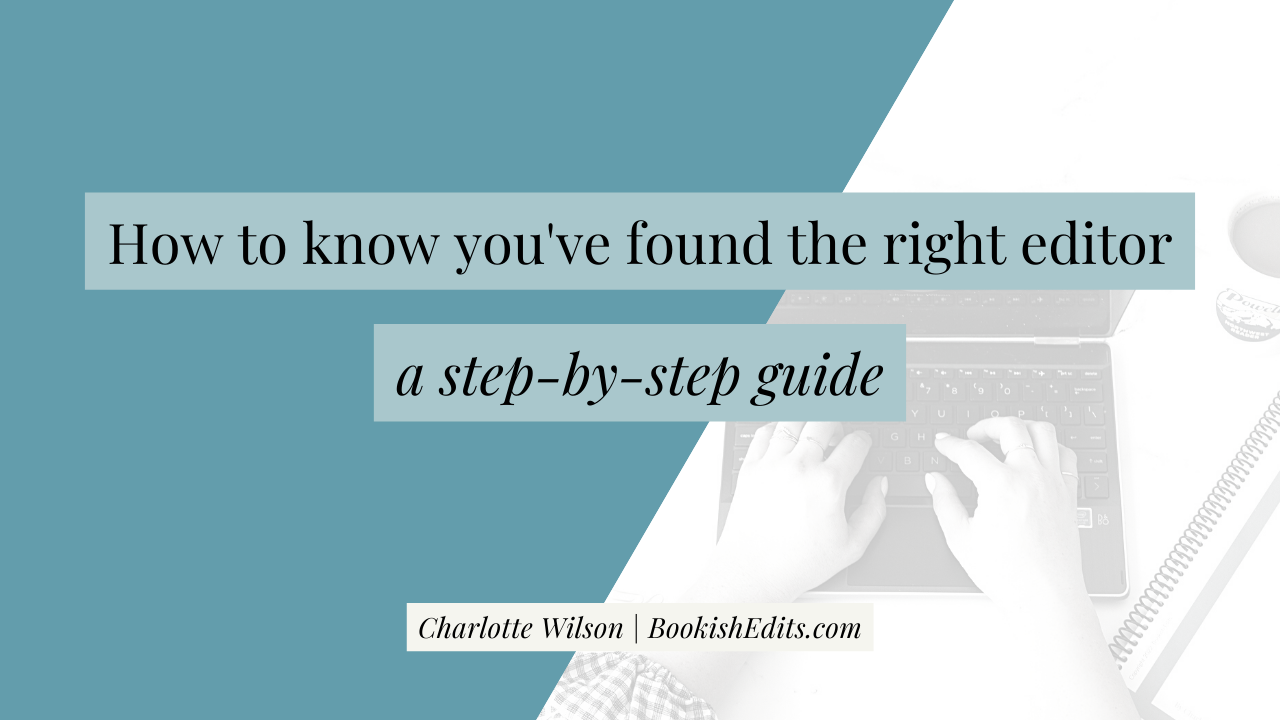How to know you’ve found the right editor for your book
A couple of years ago, I needed to find a therapist. If you’ve ever needed professional counseling, you might be familiar with the many checkpoints you need to cross to set up with a new therapist: find a person (somehow, figure that out on your own), make that first call, check with insurance, and schedule that first session. And even after all that, the therapist might not be a good fit and you have to start over. It’s overwhelming and exhausting, especially when you’re overwhelmed and exhausted to begin with.
But when you find the right one, everything changes.
Finding the right editor might feel similar. You might not be at the mental low point people seeking therapy often are, but you likely don’t know how to find an editor, what the process will look like, and how to know you’ve found the right one. And when you find that right editor? Magic.
Finding an editor
The best place to start finding an editor for your book is through referrals. Check in with the writers you know and ask for recommendations.
Next, go to an editing directory like the Editorial Freelancers Association. You can scroll through editor profiles or submit a job posting and have editors come to you. Most directories should have a filter that allows you to search by niche.
Check Facebook and Instagram. Some editors will have some social media presence. This is a good way to get to know an editor better: their style, their offers, and their availability.
Don’t discount a Google search. Typing in “memoir book editors” into the search bar does feel like trying to find a downtown restaurant without GPS, but this route can work if you’re willing to scroll through pages of results and dig deep. Get as specific as you can with your search terms and be patient as you sort through the results. Be open to following rabbit trails to find the right editor.
Give new editors a chance. Editors newer to the industry will often have lower rates as they build up their experience and client base. Regardless of how new an editor is, that sample edit will give you a good idea for what you’re working with.
Be patient. You likely won’t find the editor best for you on your first search. Be as clear as you can on what you want from an editor, and don’t compromise as you look for one.
Editing process
Most editors offer a free sample edit or discovery call. Take advantage of these (and most editors require at least one of these before moving forward). If you take advantage of a sample edit, check for consistent voice and frequent communication via comments. You want that sample edit to represent what it will be like to work with that editor, and if something doesn’t feel right, pay attention.
Sign a contract. Most private editing packages start only after you both sign a contract. Contracts exist to protect both you and your editor. A good contract will include cost and payment information, clearly outlined deliverables, and defined deadlines and important dates. Make sure you’re both clear on what you’re paying for and what to expect delivered from your editor.
Start collaboration. Your editor will likely have their own process and way of doing things. You should both be on the same page for what to expect and when. If your edit will span several months, make sure that you’re clear on when to expect communication and updates from your editor.
Knowing you’ve found the right editor
Your sample is noticeably better after the sample edit. As you read through their suggestions and comments, pay attention to what they actually are trying to do with your edit. If the manuscript sample is improved, you’re on the right track.
Your edited sample still sounds like you. The mark of a good editor is when your work still sounds like you—but better. Good editors both preserve voice and polish prose.
Communication from the editor is clear and kind. You’ll be working with your editor for a while, and you want communication to be easy. You’re trusting your editor, and they should respect that trust in how they communicate with you.
You’ll feel it. Your body and mind will feel right about the editor who is right for you. So much of writing is intuition-based, and you’ll want to listen to and trust that intuition when seeking an editor. If you don’t feel right about it, don’t move forward. There’s probably a reason.
Just like finding a therapist, you might not nail finding an editor the first time. Don’t shy away from the process, because when you find the right editor, your manuscript and story will change for the better. And just as therapy helps you see yourself in a new way, working with an editor will open your eyes to new ways of writing and interacting with your story. It’s a level-up of the best kind. You’ll learn just how magical the writer-editor relationship can be, and you’ll never have to write alone again. You’ve got this.


